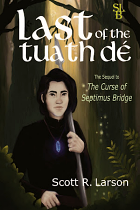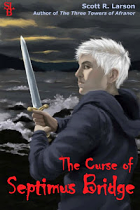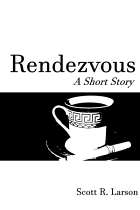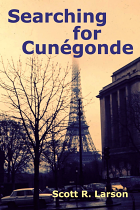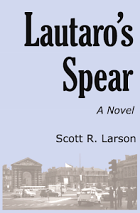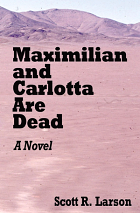Mind games
When you have a policy of avoiding spoilers when writing about movies, it makes reviewing a movie like Duncan Jones’s Source Code darn near impossible. The reviewer is pretty much reduced to saying, trust me, and go see the movie, but I’m not saying any more because I don’t want to ruin it for you.
On this page—as opposed to the review itself—I feel no such restriction. So take that as a warning that what follows will, in my view, totally spoil Source Code (and maybe a few other movies) for anyone who has not seen it and reasonably would like experience its surprises as they were meant to be.
In my review I alluded to the fact that many critics had made comparisons between Source Code and other movies. These comparisons are generally apt, but they do the potential viewer no favors. Many compared it to Inception, and that is accurate. Both movies are about people who, through technology, are able to enter into the mind of another person. Leonardo DiCaprio and his team go into the mind of Cillian Murphy and are able to act within his dreams and dreams within his dreams. Jake Gyllenhaal, on the other hand, is inserted into a virtual reality that has been built from the final eight minutes of brain activity of a dead school teacher. So the main difference between the two situations is that DiCaprio is operating in real time (although distorted, depending on how many dream layers he has traversed) in a virtual reality that is “living,” in the sense it has biological basis in a person’s brain, whereas Gyllenhaal is in a virtual reality that exists in a computer’s memory and is limited to a fixed eight-minute period in history.
The other main movie comparison to Source Code has been Harold Ramis’s Groundhog Day. This is also an apt comparison. In that movie, Bill Murray is made (for reasons the movie never really makes clear) to relive the same day over and over until he finally gets it right and becomes a better person. Likewise, Gyllenhaal must relive the same eight minutes over and over until he finally gets it right. Ostensibly, the “getting it right” means finding out who planted a bomb on the train on which the school teacher and many others died, but in the end it turns out that he ends up getting it right, like Murray, in a more personal sense as well. The difference between the two situations (apart from the obvious one, which is that Murray relives a 24-hour period and Gyllenhaal relives a mere eight minutes) is that, for Murray, for all intents and purposes time is literally being rewound for him and the rest of the universe, whereas Gyllenhaal is experiencing an artificial reality, akin to playing a video game over and over, while the rest of the universe moves forward through time normally.
Okay, all this nitpicking about the differences among the movies is a bit nerdy, but it helps to understand why Source Code’s premise is different from any similar movie we have seen and just how thought-provoking it is. Once we understand that Gyllenhaal is basically playing an elaborate virtual reality game multiple times, we can tackle what the movie actually means and what is the significance of its ending.
I have heard at least one film critic describe the ending as ambiguous. Personally, I didn’t find it ambiguous at all, but then the more I thought about it the more I decided that it was open to some varied interpretation. The tension throughout the movie (aside from the fact that we quickly learn that every time Gyllenhaal goes back into the virtual reality a bomb will explode in a matter of minutes) is that the main character wants desperately to change what happened, but his handlers (mainly, Jeffrey Wright) keep telling him that nothing he is experiencing is real and that he is only playing out elaborate what-if scenarios involving dead people. But Gyllenhaal can’t accept the fact that it’s not all real. And he has a point. If he is merely playing with memories of the dead school teacher which have somehow been digitized and saved on a computer, logically he should not be able to learn or discover anything that the teacher himself did not see or know. Yet Gyllenhaal is able to have conversations with other passengers, explore the train and even leave the train. He goes so far as to discover the bomb in its hiding place and confront the bomber at his parked van. Clearly, this is not information gleaned from the brain of a train passenger who could not know or have observed these things. So what is this? Time travel? No, Wright’s character seems correct in asserting that nothing that Gyllenhaal does in the virtual world has any effect on the real world. But it does seem to be some sort of alternate reality, a divergent timeline. At least the final time Gyllenhaal goes in, that’s what it seems to be.
So what actually happens at the end? Gyllenhaal convinces his more sympathetic handler (Vera Farmiga) to send him in one last time even though the crime has been solved and the authorities have the information needed to prevent a bigger, follow-up crime. It is important to him to prevent the train bombing, something he has not succeeded in doing in all of his previous attempts. But why does it matter if none of it is real anyway? At the end of the eight minutes, the bomb does not go off and Farmiga keeps her promise to let Gyllenhaal’s body die. At that moment, everything on the train freezes and we think that this represents a happy final moment that Gyllenhaal is taking with him to the afterlife. But then time on the train resumes and Gyllenhaal leaves the train with the lovely Michelle Monaghan and they seem poised to start a new life together. Is this some dream state that Gyllenhaal’s mind is living? Is it his afterlife? Or has he found or created an alternative reality in which he is a different person and has a whole new life ahead of him?
The idea that this is the afterlife or some sort of dream is undermined when we see Farmiga receive a text message from Gyllenhaal on her phone. Just as it defied logic for Gyllenhaal to learn things that the school teacher could not have known, it makes no sense that we see Farmiga receive Gyllenhaal’s text since Gyllenhaal himself cannot see that happen. Unless we are only seeing Gyllenhaal’s imagining of that event. But it seems pretty clear to me that the filmmakers intend us to understand that this is a whole new reality operating on a parallel timeline to the one Gyllenhaal left behind. How did Gyllenhaal wind up there? Did Jeffrey Wright create it on his computer? Or did Gyllenhaal and the dead teacher create it with their minds? Or did he just find it by some happy cosmic accident?
The puzzle of these questions and what they have to say about the way we perceive reality—as well as making a nice metaphor for experience helping us to make the right choices in life—for my money make this, in terms of concept and writing anyway, a better movie than Inception. We come away blown away by the ideas more than the special effects.
Oh yes, and one other thing I couldn’t let myself say in my review. How cool that, when Gyllenhaal rings up his father for one last chat, the voice on the phone is that of television’s consummate leaper into other people’s bodies in other time periods, the star of Quantum Leap, Scott Bakula!
-S.L., 28 April 2011
If you would like to respond to this commentary or to anything else on this web site, please send a message to feedback@scottsmovies.com. Messages sent to this address will be considered for publishing on the Feedback Page without attribution. (That means your name, email address or anything else that might identify you won’t be included.) Messages published will be at my discretion and subject to editing. But I promise not to leave something out just because it’s unflattering.
If you would like to send me a message but not have it considered for publishing, you can send it to scott@scottsmovies.com.















